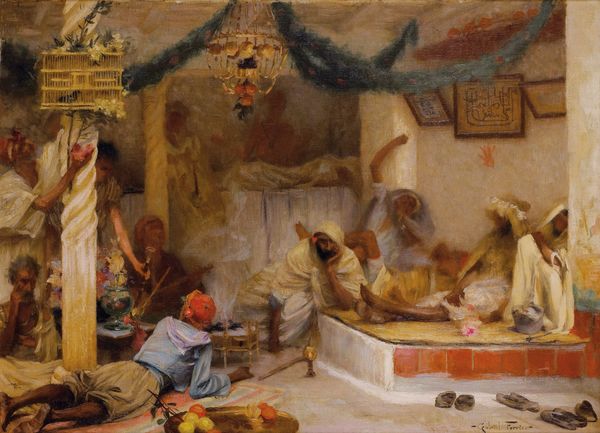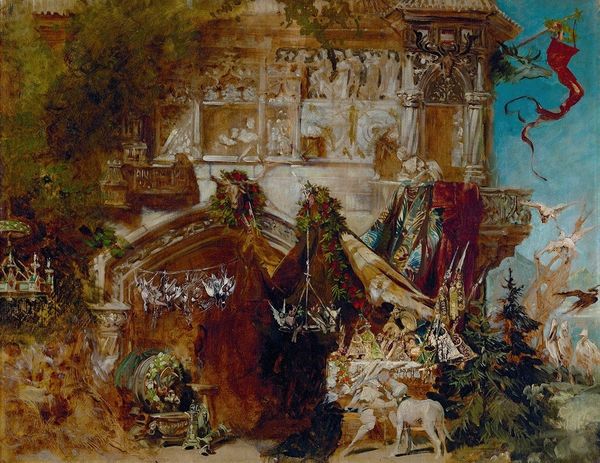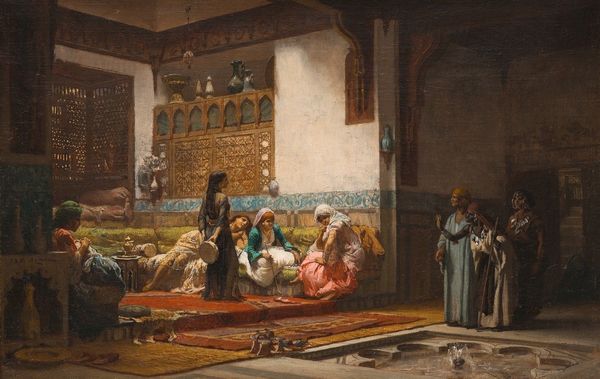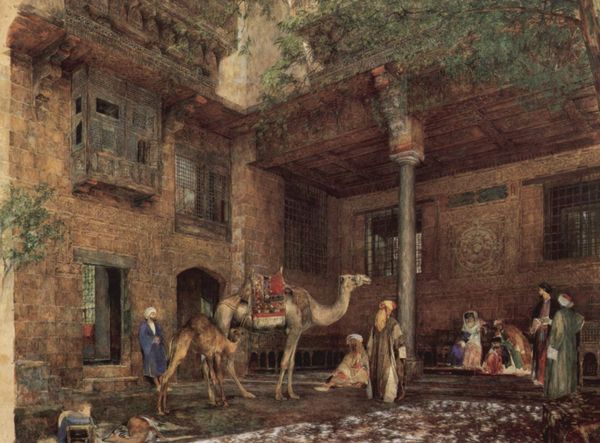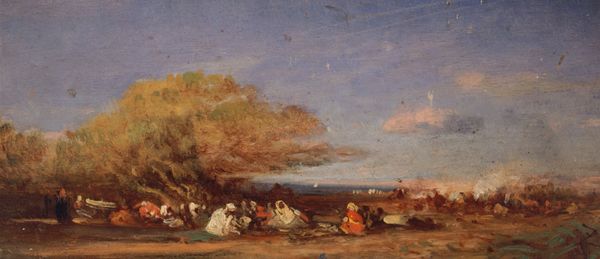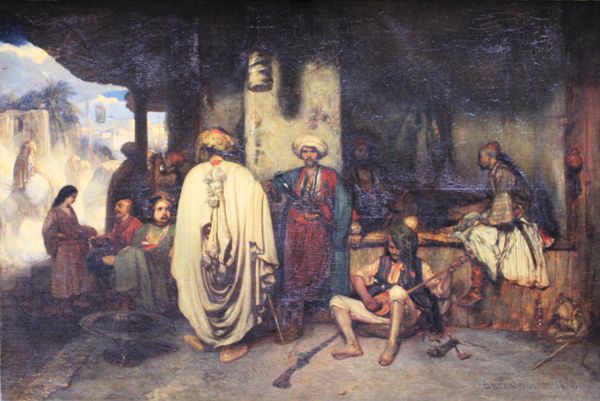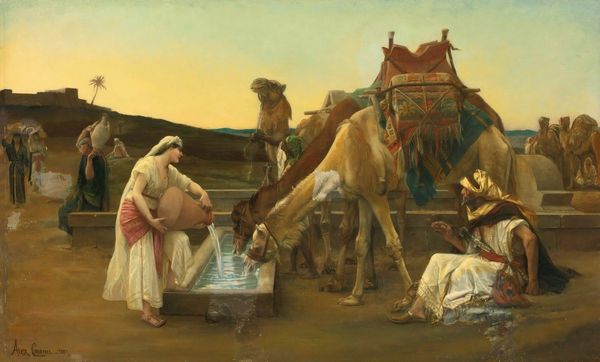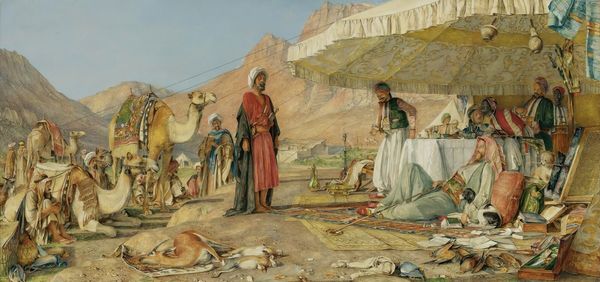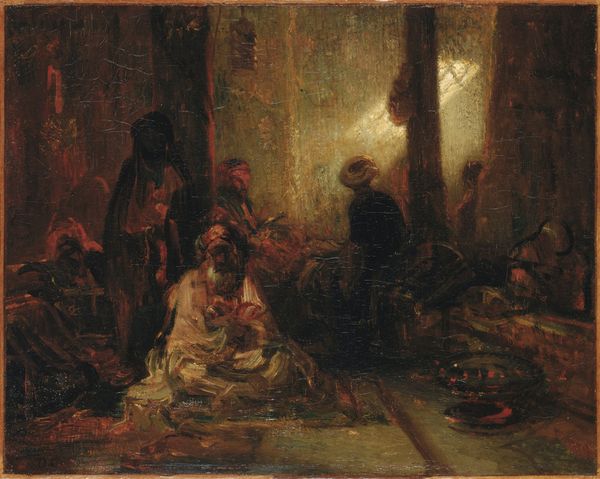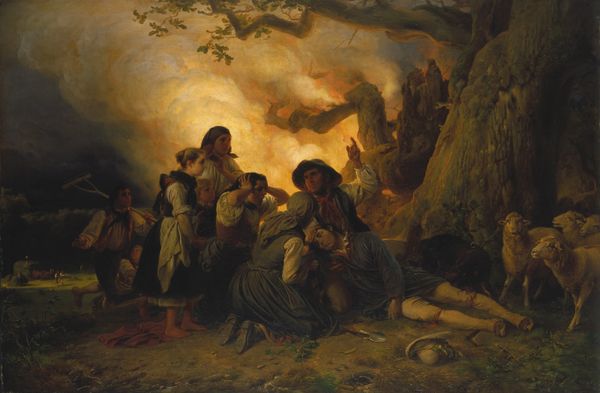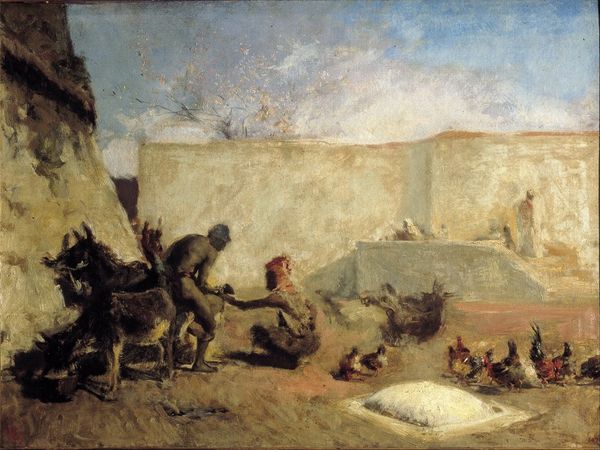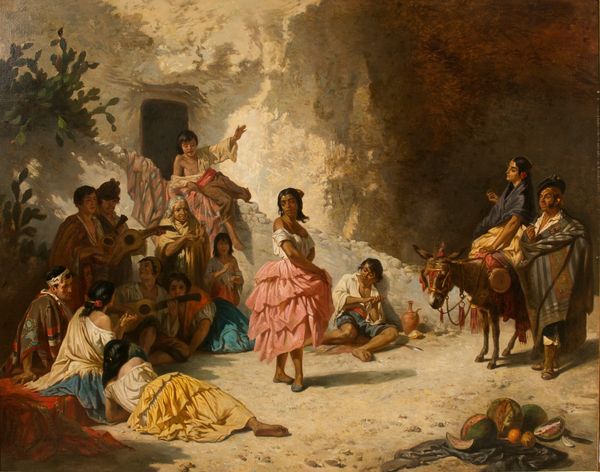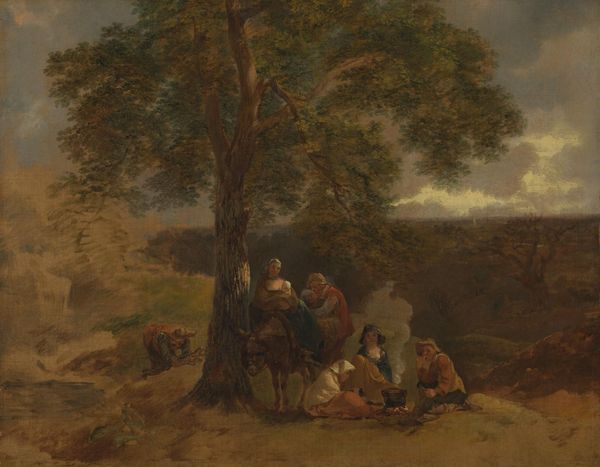
Dimensions: support: 1022 x 1168 mm
Copyright: CC-BY-NC-ND 4.0 DEED, Photo: Tate
Curator: Let's turn our attention to William Shackleton's oil on canvas, "The Mackerel Nets," currently housed in the Tate Collections. Editor: It evokes such a somber yet industrious mood, doesn’t it? The diffused light and muted palette feel almost dreamlike, despite the very grounded subject matter. Curator: Absolutely. Shackleton captures a particular moment in the fishing community, likely in the late 19th or early 20th century, emphasizing the labor involved and the communal aspect of the work. Editor: Mackerel themselves possess symbolic weight – schools of fish often signify abundance, but also vulnerability within a larger system. Curator: The nets themselves create a striking backdrop, almost like a curtain, framing the workers and their toil. Editor: A curtain that both reveals and obscures. The cyclical nature of fishing, the reliance on the sea, it all resonates. Curator: Indeed. It’s a powerful glimpse into a specific time and place. Editor: A somber reminder of our connection to nature and the labor that sustains us.
Comments
tate 10 months ago
⋮
http://www.tate.org.uk/art/artworks/shackleton-the-mackerel-nets-n03820
Join the conversation
Join millions of artists and users on Artera today and experience the ultimate creative platform.
tate 10 months ago
⋮
Shackleton was an idiosyncratic artist. He had studied in Paris in the 1890s, and developed an individual kind of Symbolism in his paintings of groups of nudes. He was devoted to the art of Turner, and borrowed from some of his paintings the unusual grey and pink colouring of many of his own. This beach scene by twilight was sketched by Shackleton near Boulogne. He worked very slowly, and made numerous studies in oil, pastel and gouache. Gallery label, September 2004
